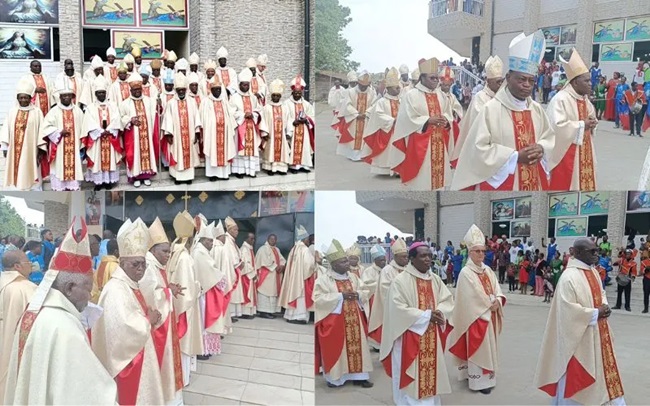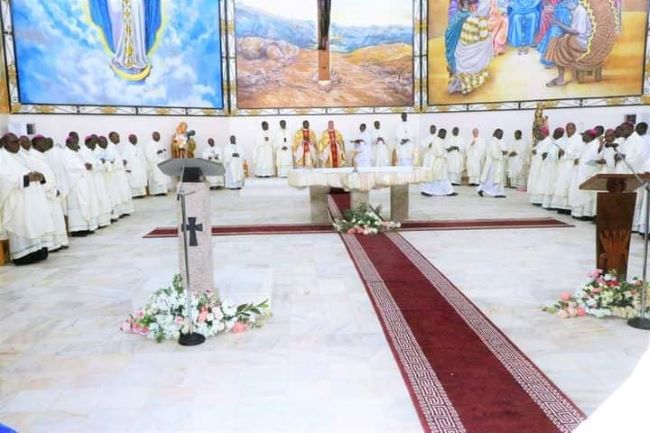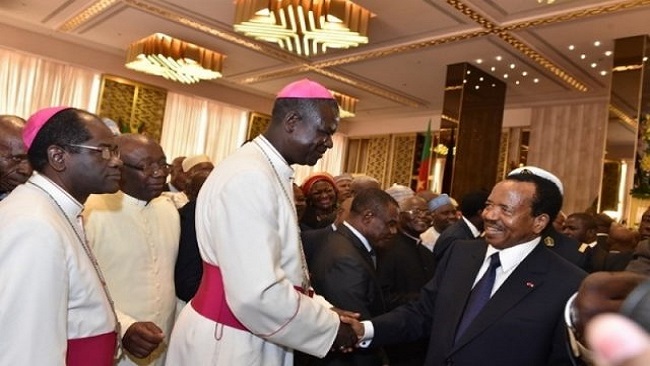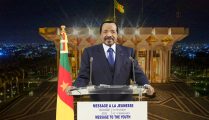8, January 2025
Minister René Sadi says no conflict between government and the Catholic Church 0
The Cameroonian government denies any conflict with religious denominations, particularly the Catholic Church, following recent statements by clergy members opposing President Paul Biya’s potential candidacy in the upcoming presidential election (scheduled for October 2025).
In a press release on January 7, Minister of Communication René Emmanuel Sadi reiterated that Cameroon is a secular state where religions coexist peacefully with public authorities. However, he described the stance taken by some Catholic clergy on Biya’s potential candidacy as “pure speculation,” noting that the president has yet to announce his intentions.
The controversy began on December 25 when Archbishop Samuel Kleda of Douala told Radio France Internationale (RFI) that a Biya candidacy in the next election “is not realistic.” President Biya subsequently declared in his New Year’s address that his “resolve to serve” remains strong, a statement widely interpreted as a hint at his intention to run.
Following this, bishops from Yagoua, Bafoussam, and Ngaoundéré used their sermons to call for leadership change in the country. Minister Sadi expressed regret over the “vehemence” of these positions, which he characterized as focusing solely on the presidential race and based on an “unwarranted interpretation” of the president’s remarks.
Source: Business in Cameroon



























12, January 2025
The Holy Father names new bishop in Yokadouma 0
The Holy Father has appointed the Reverend Justin Georges Ebengue, of the clergy of Batouri, until now rector of the Notre Dame de l’Espérance Interdiocesan Major Seminary of Bertoua, as bishop of Yokadouma, Cameroon.
Msgr. Justin Georges Ebengue was born on 18 May 1970. He attended the Saint Jean-Baptiste Preparatory Seminary of Doumé, and studied philosophy and theology at the Notre Dame de l’Espérance Interdiocesan Major Seminary of Bertoua, receiving a licentiate in canon law from the Catholic University of Central African in Yaoundé.
He was ordained a priest on 18 February 2006 for the diocese of Batouri.
He has held the following offices: parish vicar, parish priest, rector of the minor seminary of Doumé, chancellor of the diocese of Doumé-Abong’ Mbang, head of diocesan pastoral care and catechesis, diocesan administrator of Batouri (2017-2018), rector of the Cathedral of Batouri, chaplain of the Bary Catholic College, member of the College of Consultors, the Presbyteral Council and the Council for Economic Affairs, member of the administration of the diocesan Procuratorate, vicar general of Batouri.
Since 2023 he has been rector of the Notre-Dame de l’Espérance Interdiocesan Major Seminary of Bertoua.
Source: Agenzia Fides